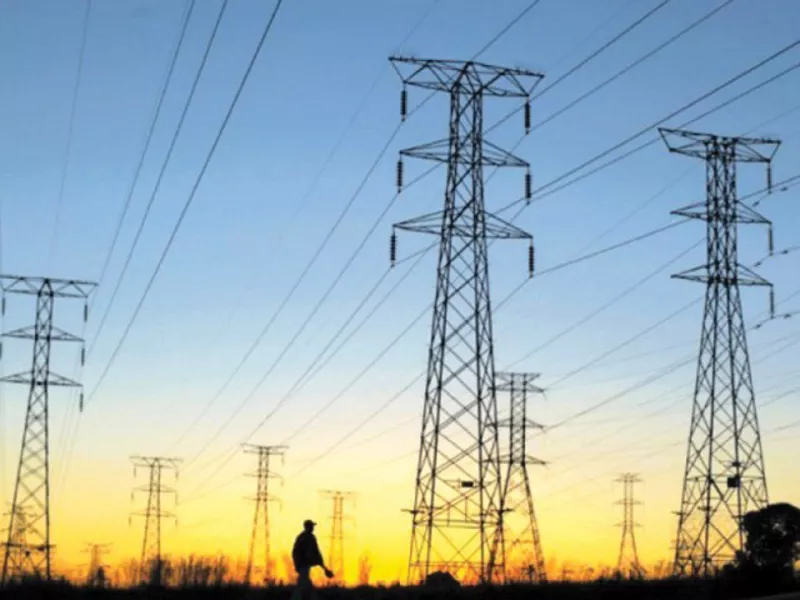Prime Minister Shehbaz Sharif has approved Pakistan’s revised 10-year Indicative Generation Capacity Expansion Plan (IGCEP 2024–2034), a groundbreaking step that is expected to save the national economy Rs4.7 trillion. This ambitious plan aims to remove costly power generation projects, prioritize renewable energy sources, and introduce market reforms to ensure a more sustainable and affordable electricity supply for the country.
What is the IGCEP 2024–34 Plan and Why Is It Crucial?
The Indicative Generation Capacity Expansion Plan (IGCEP) is a crucial part of Pakistan’s strategy to revamp its power sector. The IGCEP 2024–34 focuses on optimizing electricity generation and distribution over the next decade. By eliminating unnecessary and expensive power projects. The government aims to create a more affordable and sustainable energy system that will benefit both consumers and the economy.
Major Reforms Under the IGCEP 2024–34 Plan
The new IGCEP plan introduces several major reforms aimed at making Pakistan’s power sector more efficient and cost-effective. The government has decided to remove around 8,000 MW of high-cost electricity generation projects. These projects were initially considered essential but have now been identified as non-essential or inefficient. Instead, the focus is on renewable energy sources like solar, wind, hydropower, and nuclear, which are both sustainable and more affordable.
Projected Savings from the Revised IGCEP 2024–34
The Prime Minister’s Office (PMO) projects that the revised IGCEP will generate savings of Rs4,743 billion (around USD 17 billion). This significant amount will be saved by removing 7,967 MW of costly projects, rescheduling others, and optimizing project timelines. The plan is expected to lower electricity prices and create long-term benefits for consumers.
Breakdown of the Savings from IGCEP 2024–34
-
Cancellation of Expensive Projects: The removal of nearly 8,000 MW of high-cost projects is projected to save Rs1,953 billion (USD 7 billion).
-
Rescheduling Project Timelines: Adjustments to the project schedules are expected to result in savings of Rs2,790 billion (USD 10 billion).
-
Renewable Energy Focus: Shifting to renewable energy sources anticipated to save billions of dollars annually in foreign exchange.
The Role of Renewable Energy in IGCEP 2024–34
A major shift in the IGCEP 2024–34 is the prioritization of renewable energy sources. In the past, Pakistan’s power generation strategy relied heavily on imported fuels like coal and gas. Which are expensive and environmentally harmful. The new plan focuses on solar, wind, and hydropower, all of which are more cost-effective and sustainable in the long run.
This transition to renewable energy sources expected to not only save Pakistan billions in foreign exchange but also reduce the country’s reliance on imported fuels, leading to greater energy security.
Transition to a Competitive Electricity Market: A Key Reform
One of the most important changes in the IGCEP 2024–34 is the move towards a competitive electricity market. Currently, Pakistan’s energy sector operates under a single-buyer model, which has led to inefficiencies and higher electricity costs. The new plan will phase out this model and replace it with a competitive market where power is on competitive terms.
This shift will help lower tariffs, encourage private sector investment, and create a more transparent and efficient energy market in Pakistan.
Minister Leghari’s Vision for Power Sector Reforms
Sardar Awais Leghari, the Minister for Power, praised the approval of the IGCEP 2024–34, calling it a historic step for Pakistan. He highlighted the government’s focus on replacing costly and inefficient power projects with more affordable and sustainable alternatives. Minister Leghari also emphasized that the elimination of power purchase agreements involving capacity payments or sovereign. It guarantees was a critical step toward ensuring fiscal discipline and long-term savings.
Merit-Based Power Planning: A New Era for Pakistan’s Energy Sector
For the first time, power generation planning in Pakistan has been based purely on merit and national interest. Under the IGCEP 2024–34, the government has committed to eliminating expensive. Underperforming projects and replacing them with cost-effective, sustainable alternatives. This marks a significant departure from previous practices, where political influence and special interests often played a role in power planning decisions.
How the IGCEP 2024–34 Will Benefit Pakistan’s Future
The IGCEP 2024–34 is more than just an energy plan; it is a strategic roadmap for Pakistan’s future. By prioritizing renewable energy, eliminating high-cost projects, and introducing market reforms, the plan will:
-
Lower electricity tariffs: The removal of high-cost projects and the shift to renewable energy will make electricity more affordable for consumers.
-
Attract private sector investment: The competitive electricity market will encourage private companies to invest in Pakistan’s energy sector.
-
Reduce reliance on imported fuels: Focusing on domestic and renewable energy sources will reduce Pakistan’s dependence on costly imported fuels.
-
Strengthen energy security: The plan will make Pakistan’s energy sector more resilient to global market fluctuations and ensure a reliable power supply.
The Path to a Sustainable and Competitive Energy Market
The IGCEP 2024–34 sets the stage for a transformed energy sector in Pakistan. By focusing on sustainable, low-cost, and renewable power generation, the plan will ensure the country’s energy needs. Additionally, the shift to a competitive electricity market will create a transparent and fair system that benefits both consumers and investors.
Conclusion: A Historic Achievement for Pakistan’s Energy Future
The approval of the IGCEP 2024–34 by Prime Minister Shehbaz Sharif marks a significant milestone in Pakistan’s journey. For a more sustainable, affordable, and competitive energy sector. By prioritizing renewable energy, eliminating costly projects, and implementing market reforms, the plan promises long-term benefits for both the economy and the people of Pakistan.
With this revised energy plan, Pakistan is well on its way to achieving a more efficient and resilient power sector. Ensuring affordable electricity for all while reducing reliance on expensive imports. The IGCEP 2024–34 is a vital step toward securing Pakistan’s energy future and driving economic growth in the years to come.


